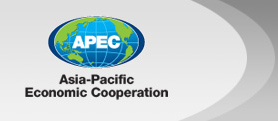APEC economy: Canada; Jurisdiction: British Columbia
Temporary practice ('fly-in, fly-out' practice)
Since September 2013 a change to the rules of the Law Society of British Columbia has allowed for temporary practice. Rule 2-19.1 states that "a practitioner of foreign law may provide foreign legal services without a permit for a maximum of 30 business days in any calendar year." The relevant rule can be found here.
Limited licensing of foreign lawyers (foreign legal consultant rules)
A foreign lawyer can obtain a limited licence entitling them to offer advisory services in foreign and international law (ie become a foreign legal consultant).
The relevant legislation is the Legal Profession Act S.B.C. 1998, c.9, section 17 and the Law Society Rules passed under the authority of the Act.
Details of the requirements for qualifying for a limited licence and what a limited licence entitles a foreign lawyer to do are included in the database. Requirements include that a foreign lawyer must apply for a licence as a practitioner of foreign law, must be of good character and repute, must provide documentary evidence that they are a member of the legal profession of one or more foreign jurisdictions, must provide proof that they have practised the law of a foreign jurisdiction for at least three of the last five years.
In order to offer advisory services in foreign and international law, a foreign legal consultant is not required to enter a commercial association with local lawyers.
As at June 2009, approximately 25 limited licences had been granted to foreign lawyers in this jurisdiction.
Full licensing
A foreign lawyer can obtain a full licence to practise law in this jurisdiction.
The relevant legislation is the Legal Profession Act.
In order to obtain a full licence to practise law in this jurisdiction, foreign lawyers must apply to the National Committee on Accreditation for evaluation of their legal credentials and experience. The National Committee on Accreditation (NCA) establishes the educational and practice requirements an applicant must meet to be considered for admission to the Law Society. These requirements are different from the rules applicable to a local applicant. They differ in that applicants with a Canadian common law degree may apply directly to the Law Society. The processes of the NCA have been created so that an equivalency to a Canadian common law degree can be created for each individual applicant.
Commercial association between lawyers and law firms
In this jurisdiction:
- local lawyers may be employed by another local lawyer of a local firm;
- local lawyers may be employed by a foreign lawyer or foreign firm;
- foreign lawyers may provide services in some other form of commercial association with local lawyers;
- foreign firms are permitted to establish a commercial presence (a permanent office) to offer advisory services in foreign and international law;
- foreign firms are permitted to enter into commercial association with local lawyers or law firms.
Other regulatory issues
In this jurisdiction:
- there are specific rules in relation to advertising. These rules are included in Chapter 14 of the Professional Conduct Handbook;
- there are specific rules in relation to use of names by lawyers or law firms. These rules provide that: insofar as firm names are a 'marketing activity', the provisions of Chapter 14 of the Professional Conduct Handbook apply.
Foreign lawyers and firms are treated the same as local lawyers in the application of these rules.
Contacts
| Category | Name | Website or other contact details |
|---|---|---|
| Organisation(s) that controls licensing of lawyers | Law Society of British Columbia | www.lawsociety.bc.ca |
| Peak professional association representing the legal profession | Canadian Bar Association (British Columbia Branch) | www.cba.org/bc/home/main |
| Other associations playing a significant role in developing policy for the legal profession | Federation of Law Societies of Canada | www.flsc.ca |
Other issues
In Canada, regulation of the legal profession is the exclusive responsibility of the Provincial and Territorial Law Societies. Law Societies are mandated by provincial law and territorial legislation to regulate the profession in the public interest. This includes setting rules governing admission to the profession. As such, the regulation of foreign lawyers who wish to practise in Canada is governed by the rules of the individual Law Societies. Law Societies are not representatives of, or advocates for, the profession. That role is fulfilled by organisations such as the Canadian Bar Association and its branches.
